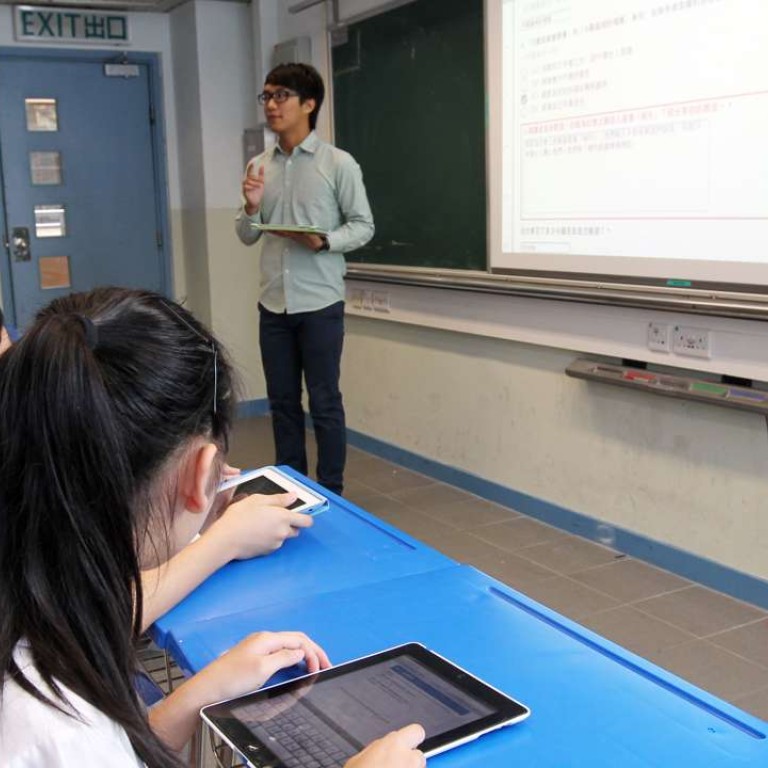
One in three Hong Kong Form Five students face ‘national identity crisis’: survey
Think tank researchers recommend national education in schools to address problem; disagree that this equals brainwashing
One in three Form Five secondary school students face a “national identity crisis” as they do not consider themselves Chinese citizens, according to a survey.
The study, conducted by think tank Hong Kong Policy Research Institute, also found that students who identified themselves as Hongkongers did not necessarily deny their identities as Chinese citizens.
Some 2,000 Form Five students from 20 schools across Hong Kong were asked two sets of seven questions.
They were asked to agree or disagree with statements such as “I am willing to contribute to Hong Kong” and “I have the responsibility to create a better future for the People’s Republic of China”.
Those who agreed with five or more statements were considered as identifying themselves as either a Hongkonger or a Chinese citizen.
Some 86 per cent of those polled identified themselves as Hongkongers, while 57 per cent considered themselves Chinese.
Of those who identified themselves as Hongkongers, more than half, or 64 per cent, also identified themselves as Chinese citizens.
Some 30 per cent however did not identify themselves as Chinese citizens – a trend researchers called a “national identity crisis”.
Identifying yourself as a Chinese national doesn’t mean you agree with all of China’s government policies ...
“It’s a crisis because it endangers the very foundation of the ‘one country two systems’ principle,” the think tank’s director Andrew Fung Ho-keung said.
Of those who did not consider themselves Chinese citizens, 70 per cent said they have never participated in events such as the June 4 vigils or protested with radical methods.
Fung said the majority of those lacking a national identity may also express themselves in other ways, such as through their voting preferences, which could undermine the stability of Hong Kong.
Researchers said the only way to target this lack of a national identity was through implementing national education into the city’s formal school curriculum.
But in 2012, a government plan to add “national education” courses – aimed at nurturing patriotism for China – to the school curriculum was scrapped after protests lasting 10 days were held.
“In the United States, it doesn’t mean that those identifying themselves as Americans support all of the government’s policies. The same goes for us. Identifying yourself as a Chinese national doesn’t mean you agree with all of China’s government policies either,” Fung said.

